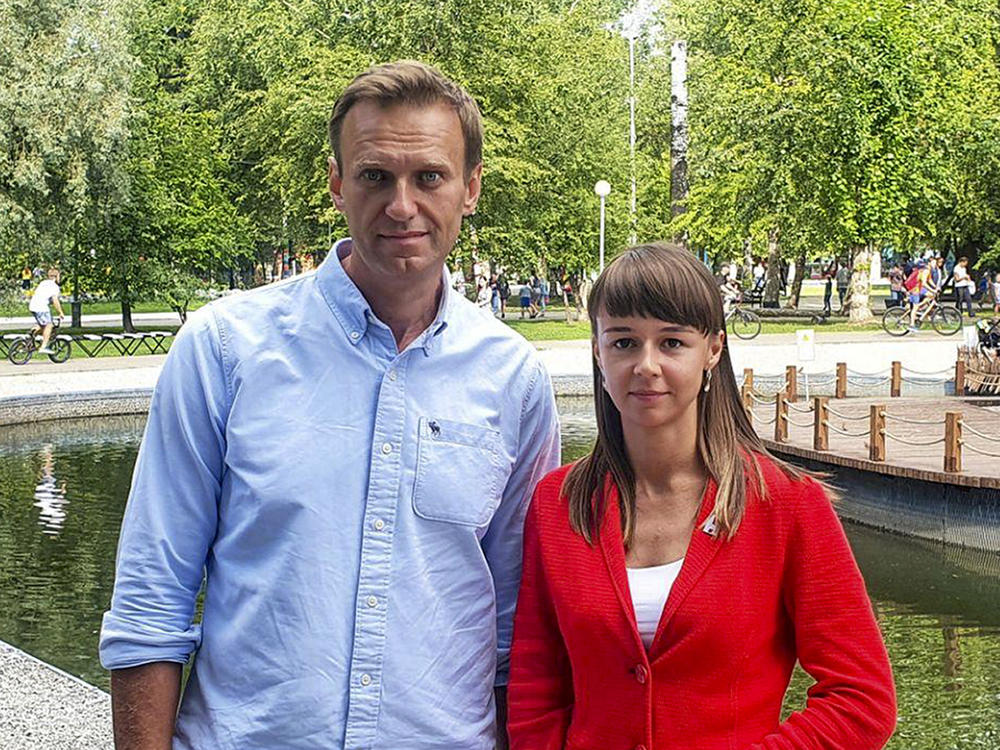Section Branding
Header Content
Alexei Navalny, Putin Critic Who Was Poisoned, Is Out Of Coma And Improving
Primary Content
Russian opposition leader Alexei Navalny, hospitalized in Berlin for several weeks after being poisoned, has been taken out of his medically induced coma.
In a statement Monday, Berlin's Charité hospital said Navalny's condition has improved and he is being weaned off mechanical ventilation. Navalny is responding to verbal stimuli, however, "it remains too early to gauge the potential long-term effects of his severe poisoning," the hospital said.
The hospital only released details of Navalny's condition after first consulting with his wife, who reassured doctors that Navalny would want that information released.
The 44-year-old politician, one of Russian President Vladimir Putin's most prominent critics, became ill from poison on Aug. 20 during a domestic flight in Russia. Suspicion immediately fell on the Russian government, which has poisoned critics of the state before.
Two days later, Navalny was flown to Germany for treatment, where doctors put him into a coma. A German military laboratory confirmed last week that Navalny had consumed a variant of Novichok, a Soviet-era nerve agent, prompting the German government to demand a Russian investigation.
"There's no doubt whatsoever" that Navalny's poisoning was approved by the highest levels of Russia's government, former CIA chief of Russia operations Steven Hall told NPR's Mary Louise Kelly.
The U.K. summoned the Russian ambassador to the country Monday to express its "deep concern" over Navalny's poisoning, First Secretary of State Dominic Raab said on Twitter. "It's completely unacceptable that a banned chemical weapon has been used and Russia must hold a full, transparent investigation," he said.
The Kremlin has dismissed accusations that it had anything to do with poisoning Navalny. "Attempts to somehow associate Russia with what happened are unacceptable to us, they are absurd," Putin spokesman Dmitry Peskov said, according to the BBC.
Copyright 2020 NPR. To see more, visit https://www.npr.org.

